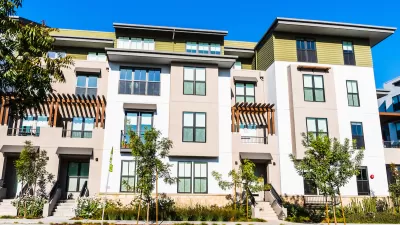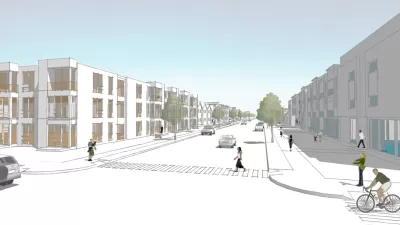There's a physical cost to rising rents, and Oakland residents are paying the price.

Housing insecurity is behind an increase in hypertension, asthma, depression, anxiety, and schizophrenia in Oakland and surrounding cities, according to the Alameda County Public Health Department.
Between 2012 and 2014, Alameda County residents who spent 35 percent of their income on rent were twice as likely to be hospitalized for hypertension or mental illness as residents who spent less than 25 percent of their income on rent.
Children living in homes packed with 10 to 12 extra people were six times more likely to go to the emergency room for asthma than children living in homes that were not overcrowded.
A study conducted by the department and PolicyLink's Center for Infrastructure Equity identified several reasons for these "upticks."
High stress levels—caused, for instance, by the uncertainty of making rent any given month—can trigger or worsen a number of health problems, including those named in the study. Higher housing costs also mean less room in the budget for health- and medicine-related expenditures to treat or manage those problems.
And county employees reported that their clients are increasingly afraid to ask landlords to address hazardous conditions, like mold or mildew, for fear of increased rent or eviction.
In 2014, the county found that gentrification posed a health risk to low-income communities for similar reasons.
FULL STORY: Public health problems in Oakland linked to housing crisis

Planetizen Federal Action Tracker
A weekly monitor of how Trump’s orders and actions are impacting planners and planning in America.

San Francisco's School District Spent $105M To Build Affordable Housing for Teachers — And That's Just the Beginning
SFUSD joins a growing list of school districts using their land holdings to address housing affordability challenges faced by their own employees.

The Tiny, Adorable $7,000 Car Turning Japan Onto EVs
The single seat Mibot charges from a regular plug as quickly as an iPad, and is about half the price of an average EV.

Seattle's Plan for Adopting Driverless Cars
Equity, safety, accessibility and affordability are front of mind as the city prepares for robotaxis and other autonomous vehicles.

As Trump Phases Out FEMA, Is It Time to Flee the Floodplains?
With less federal funding available for disaster relief efforts, the need to relocate at-risk communities is more urgent than ever.

With Protected Lanes, 460% More People Commute by Bike
For those needing more ammo, more data proving what we already knew is here.
Urban Design for Planners 1: Software Tools
This six-course series explores essential urban design concepts using open source software and equips planners with the tools they need to participate fully in the urban design process.
Planning for Universal Design
Learn the tools for implementing Universal Design in planning regulations.
Smith Gee Studio
City of Charlotte
City of Camden Redevelopment Agency
City of Astoria
Transportation Research & Education Center (TREC) at Portland State University
US High Speed Rail Association
City of Camden Redevelopment Agency
Municipality of Princeton (NJ)





























